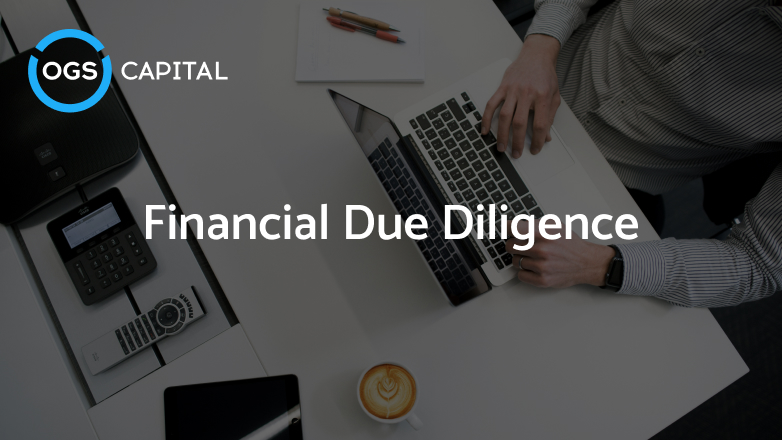Table of Content
What is Financial Due Diligence?
Financial due diligence is a comprehensive and systematic examination of the financial aspects of a target company, especially when it is part of an acquisition business plan. Financial due diligence helps you check if the data given by the seller is true and complete and if there are any problems or dangers that could change the value or success of the deal.
Financial due diligence is usually conducted by the buyer or by a third-party advisor hired by the buyer. The scope and depth of due diligence may vary depending on the transaction’s size, complexity, and nature, as well as the availability and quality of the data.
Some of the common objectives of financial due diligence are:
- Confirming historical and current performance
- Assessing the reasonableness of projections and assumptions
- Identifying any accounting adjustments or discrepancies
- Evaluating the quality of internal controls and processes
- Reviewing tax status and liabilities
- Analyzing working capital and cash flow
- Identifying contingent liabilities and their impact
- Benchmarking against peers to identify opportunities and threats
Importance of M&A Financial Due Diligence
According to Harvard Business Review, anywhere between 70 and 90 percent of M&As fail due to poor due diligence. FFD in finance is crucial for both the buyer and the seller in an M&A transaction, as it can help them achieve a successful and fair outcome. Some of the benefits of due diligence are:
For Buyer
- Validate the attractiveness and suitability of the target
- Determine the fair value and optimal price
- Identify and mitigate monetary risks
- Gain deeper business insight to enable smooth integration
For Seller
- Present the company favorably and showcase strengths
- Anticipate and address buyer questions and concerns
- Provide accurate and timely financial information
- Avoid surprises that may risk or delay the deal
- Maximize deal value and expedite closing
Note
In short, diligence allows both parties to make informed decisions, negotiate effectively, mitigate risks, and work towards a mutually beneficial acquisition. The focus is on enabling a smooth process and successful transition.
Financial Due Diligence Process
You can divide the finance due diligence process into four main steps:
Step 1: Planning and Scoping
Define the objectives, scope, and timeline of the financial diligence, as well as the roles and responsibilities of the parties involved.
The buyer or its advisor will send a Request For Information (RFI) or a Due Diligence Questionnaire (DDQ) to the seller, listing the financial data and documents that they need to review.
The seller will then prepare and provide the requested information, usually through a virtual data room (VDR), a secure online platform that allows the parties to share and access confidential data.
The buyer or its advisor will also conduct preliminary research and analysis on the target company, its industry, and its competitors, to gain a basic understanding and to identify any key areas of focus or concern.
Step 2: Analysis and Investigation
Conduct a thorough and detailed examination and verification of the information provided by the seller, as well as gathering additional data or evidence if needed.
The buyer or its advisor will perform various analysis, such as:
- Historical and current statement analysis
- Financial projection and valuation analysis – Discounted Cash Flow (DCF), Comparable Company Analysis (CCA), Precedent Transaction Analysis (PTA)
- Quality of earnings report (QoE) analysis
- Working capital and cash flow analysis
- Debt and financing analysis
- Tax analysis
- Internal control and system analysis
- Contingent liability and commitment analysis
The buyer or its advisor will also conduct interviews and site visits with the target company’s management to gain more insights and clarifications on the financial aspects of the business.
Step 3: Reporting and Communication
Prepare and present the findings and conclusions of the buy-side due diligence and sell-side due diligence, as well as communicate and discuss them with the relevant parties.
The buyer or its helper will make a financial due diligence report, which gives the main monetary details, problems, dangers, and chances of the company that they want to buy or invest in, and tells them what the deal price, rules, and conditions should be.
The report will be sent and checked by the buyer and the people who work with or for them. The report will also help them talk more with the seller and their helpers to finish the deal plan and contract.
Step 4: Closing and Integration
Complete and execute the deal and integrate the target company into the buyer’s organization.
The buyer and the seller will agree and sign the final contract, which says the final deal price, rules, and conditions, and will do the needed legal, official, and paperwork steps and actions.
The buyer will give the consideration they agreed on to the seller, get the rights and power of the company they want to buy or invest in and begin the process of joining the two companies.
Financial Due Diligence Checklist
The following is a sample financial due diligence checklist that covers some of the common items and documents that the buyer or its advisor may request and review during the due diligence process:
Financial Statements and Reports
- Audited annual financial statements (past 3–5 years)
- Unaudited interim financial statements (current year)
- Monthly/quarterly financial reports (past 2 years)
- Management discussion and analysis (past 3–5 years)
- Budgets and forecasts (current and next year)
- Financial projections (next 3–5 years)
- Variance analysis of actual vs budgeted/forecasted performance
- Key ratios and metrics (past 3–5 years)
- Benchmarking analysis against peers and industry
- Quality of earnings report
- Audit reports and findings (past 3–5 years)
- Internal audit reports and findings (past 3–5 years)
- Accounting policies and standards
- Financial reporting processes, internal controls, and compliance
Tax Matters
- Tax returns and filings (past 3–5 years)
- Tax assessments and audits (past 3–5 years)
- Tax assets/liabilities on the balance sheet
- Tax history and compliance
- Tax implications of the transaction
Working Capital and Cash Flow
- Working capital schedule (past 3–5 years)
- Working capital cycle (past 3–5 years)
- Working capital requirements and drivers
- Working capital adjustments and normalization
- Working capital and cash flow projections (next 3–5 years)
- Working capital and cash flow benchmarks
- Working capital optimization opportunities
- Working capital implications of the transaction
Debt and Financing
- Debt schedule (past 3–5 years)
- Debt service coverage ratio (past 3–5 years)
- Net debt calculation
- Debt covenants and restrictions
- Debt history and compliance
- Debt and financing implications of the transaction
Contingent Liabilities and Commitments
- Contingent liability and commitment schedule
- Contingent liability and commitment history and compliance
- Contingent liability and commitment implications of the transaction
Confused about how to perform financial due diligence? Our team at OGSCapital can help.
We are OGSCapital, experts in due diligence in mergers and acquisitions. Whether you are an investor or a buyer, we will help you make informed, confident decisions and ensure a smooth transaction. We can handle valuation, negotiation, closing, integration – everything you need. You will get a clear, concise report with actionable insights and recommendations.
Looking to conduct financial due diligence? We’ve got you covered. Reach out, and let’s talk about how to conduct financial DD for your next M&A deal through our due diligence and other services like market research, business plans, financial modeling, and more.
Frequently Asked Questions
What are the principles of financial due diligence?
Before making a business deal, financial due diligence checks a company’s financial records to see how well it is doing and what risks it faces. The main things to do are confirm assets/liabilities, look at how the company did in the past, and estimate how it will do in the future.
Is financial due diligence a consulting?
Financial due diligence can certainly be considered a type of consulting work. Firms will hire consultants to thoroughly assess the financial health and outlook of a company before a major transaction.
OGSCapital’s team has assisted thousands of entrepreneurs with top-rate business plan development, consultancy and analysis. They’ve helped thousands of SME owners secure more than $1.5 billion in funding, and they can do the same for you.



















